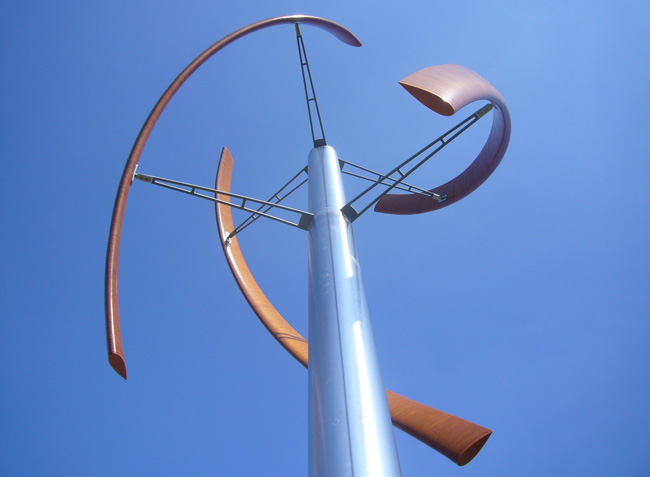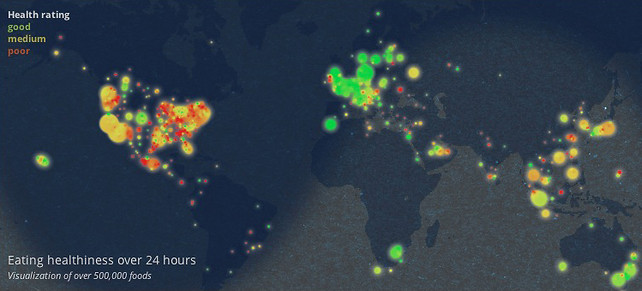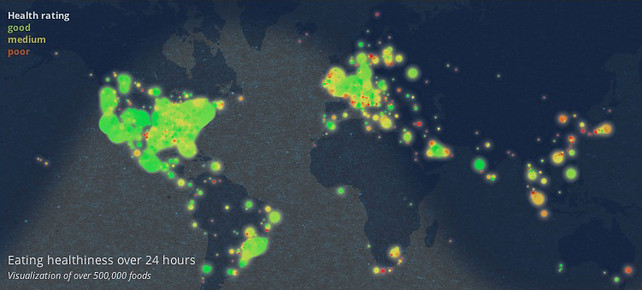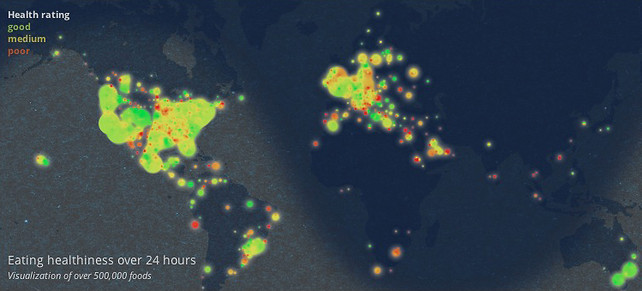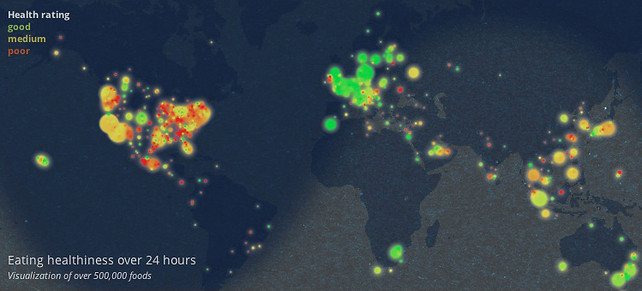I don’t have to tell you that people eat crappier food late at night than they do in the light of day. You probably figured that out when Taco Bell invented a fourth meal in the middle of the night. But according to Massive Health’s interactive map of self-reported food quality, we’re on a slippery health slope from the time we wake up in the morning. Food choices get consistently more lousy as the day wears on.
FastCompany theorizes that this drop-off in conscientious eating comes from decision fatigue:
[I]t seems possible that we eventually end up paying for all the good decisions we make early in the morning. As our willpower gets depleted during the course of the day, we succumb to worse and worse decisions in the afternoon and night. The question is: If we know that, can we hack our brains accordingly?
There are a few other explanations, though. This is all based on self-reported data, so people may just feel crummier about their choices the longer they spend at work or school. Alcohol starts sneaking in at about 5 p.m. (or earlier for journalists), which can taint your assessment of a meal’s nutritional value — not to mention hampering your ability to make good choices. And dinners, even perfectly healthy dinners, are often larger meals and more likely to include food we’ve coded as “bad” (potatoes, bread, meat), so people might tend to report reasonable dinners as more unhealthy than that artificially sweetened yogurt they grabbed on the way to work.
But once we hit 10 or 11 p.m., I think we can give Taco Bell some of the blame.
